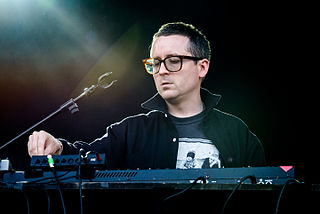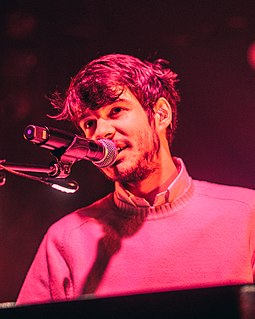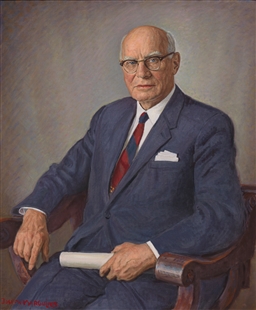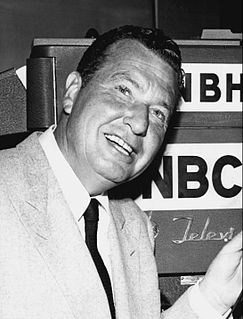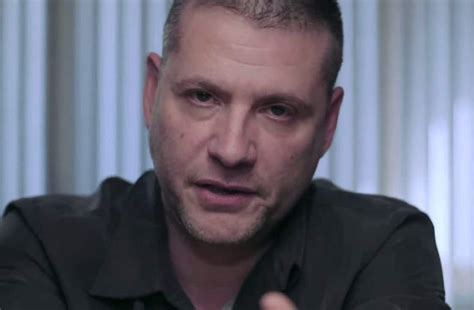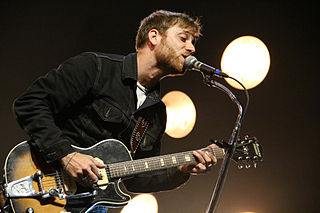A Quote by Jim Morrison
In the beginning we were creating our music, ourselves, every night . . . starting with a few outlines, maybe a few words for a song. Sometimes we worked out in Venice, looking at the surf. We were together a lot and it was good times for all of us. Acid, sun, friends, the ocean, and poetry and music.
Related Quotes
I'm quite interested in what words can be, if it's very few words, and it's a kind of club track but it has a sort of uplifting or spiritual kind of feeling to it. Somehow, something bigger than just the words on the page happens when you hear it all together. Sometimes I notice when I'm DJing, I put on a lot of tracks that feature vocals. I guess for me, it's just from growing up loving songs, so maybe I'm geared slightly more towards dance music that features a song element.
When that much time goes by, you're really listening to your old music differently. At the time it's written, it was the beginning of our career and with every song we're thinking, 'This is what's creating us.' Now, nothing is creating us. We're well-created. We're there. It becomes just pure pleasure and you become sort of an archeologist of your own music. You don't judge it, because what's the point? It's a 30-year-old song. It just becomes fun.
There's a few times in the past when I wrote a song, and I put the words together, and they were very clear pictures, and I felt like I was putting together a really good story. But I don't think I was ever really able to stay on that. What I've sort of developed lyrically is more about the sound of the vocals and what they are.
We had no churches, no religious organizations, no sabbath day, no holidays, and yet we worshiped. Sometimes the whole tribe would assemble to sing and pray; sometimes a smaller number, perhaps only two or three. The songs had a few words, but were not formal. The singer would occasionally put in such words as he wished instead of the usual tone sound. Sometimes we prayed in silence; sometimes each one prayed aloud; sometimes an aged person prayed for all of us. At other times one would rise and speak to us of our duties to each other and to Usen. Our services were short.
Sometimes you have to wonder if there isn't an ejector seat built into having a popular-music career. We were lucky when we started. We were already old when we started - you could have described our first album as "aging Brooklyn guys." We were in our late 20s. We weren't octogenarians, but a lot of bands were already younger than us. Fortunately, we've held on to our manly good looks.
The scientists I looked up to at the beginning were not Latino. They were famous scientists of many years ago, like Madame Curie. Later, I realized that there were also, but a very few, Latino scientists. There were good ones, but very few, because there wasn't as much a tradition to be a scientist in our culture. But this is changing.
Our enemies didn't adhere to the Geneva Convention. Many of my comrades were subjected to very cruel, very inhumane and degrading treatment, a few of them even unto death. But every one of us - every single one of us - knew and took great strength from the belief that we were different from our enemies, that we were better than them, that we, if the roles were reversed, would not disgrace ourselves by committing or countenancing such mistreatment of them.
I've worked with the Warrens. For about 20 years. I was really good friends with Ed. Ed and Lorraine. We went our separate ways, there were a few differences. In their organization, being that they were from Connecticut, I started the New York City chapter of the organization and handled things in New York. But eventually I was out on my own. But I've been friends with them for a long time.
We were doing Scarface many years ago...and I remember having my coffee and looking at the beach, the surf, and I saw a hundred people looking out into the ocean. I thought, what's going on? Did some whale get washed up to shore? So I stood up on the table to see what it was, and it was the director, Brian De Palma, standing there alone by the surf and they were all waiting for him. And I never forgot that because it represented to me what a director is, what a director does.

